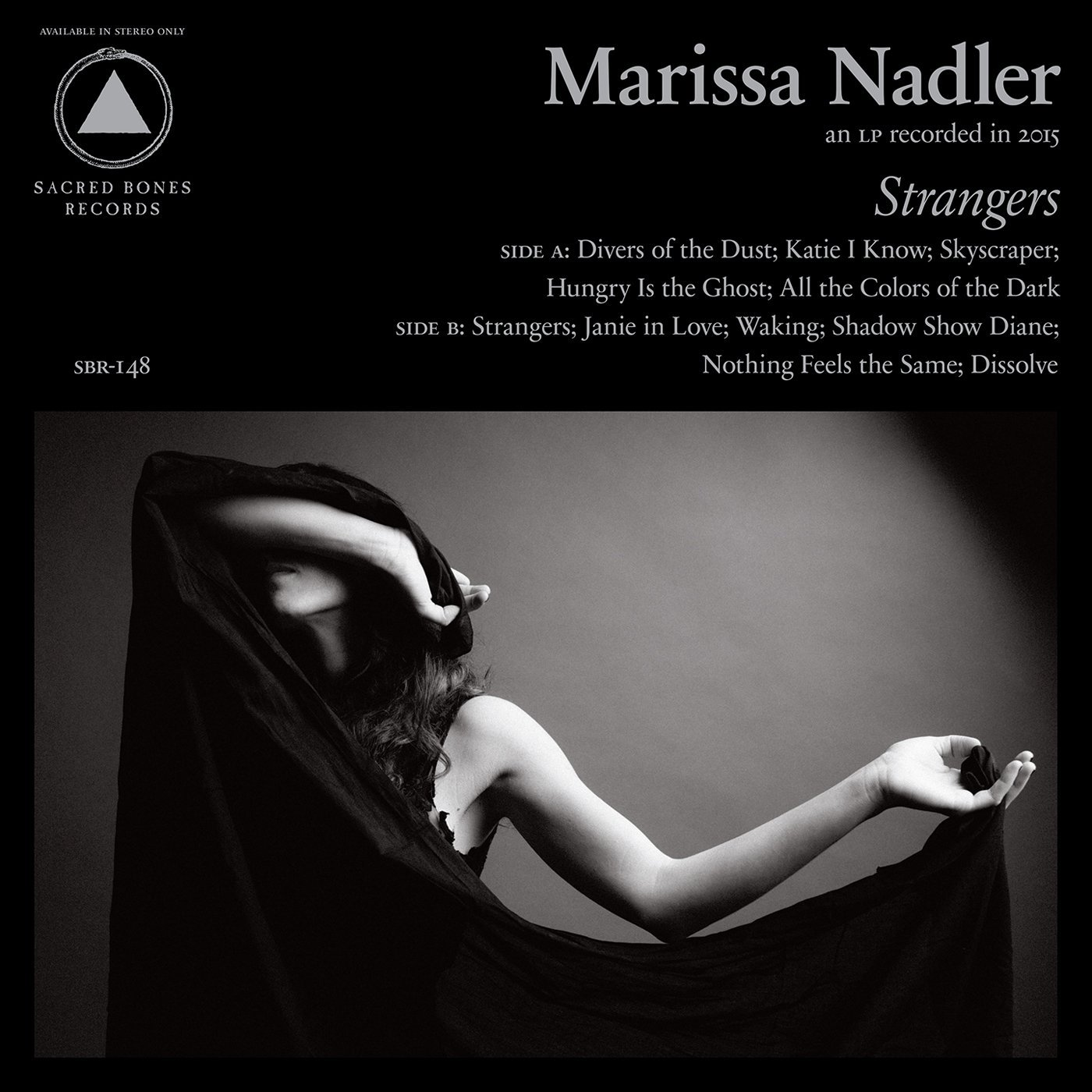Boston’s Marissa Nadler doesn’t so much sing as inhabit every note, her lower register shivering exquisitely, given life by her elegantly crafted crumpled narratives like ornately drawn celestial monuments to tragedy and existentialism. Once again she’s joined by July producer Randall Dunn (Sunn O))), Earth, Black Mountain) – sparse, enveloping and magical; these compositions are perfectly pitched, each of Nadler’s poetic couplet giving human form to these lonely, desperate and hungry characters. These are the Strangers, and this is her seventh album. It depicts an artist at the peak of her powers.
Where 2014’s gorgeously autobiographical July used heartbreak as her muse, here she gives voice to dreams, and like a Lynchian film, she gives her characters poignant (sometimes surreal) voice to uncover darker truths that lay beneath the surface, a melodrama that chimes with the universal struggle of the self.
The centrepiece is the spine-tingling slow-mo melodrama of title track ‘Strangers’, typical of the sighing elegiac compositions, garnished in withered wisps of slide guitar and pared back percussive thuds. When she sings “I am alone now,” like a ghostly visitation, it feels like a promise.
Still the night draws in and the end is never far away on Strangers – take the prodding pianos and hushed vocals of majestic opener ‘Divers of the Dust’, its lyrics emerging via Dadaist cut-up technique, popularised by David Bowie and William S. Burroughs. Inhabiting the male figure, her lyrics are cinematic and widescreen as she paints the scene of empty reflection, then focuses in on unrequited longing, each note like a feathery breath on your neck and she sketches out in sometimes surrealist terms, dangerous liaisons that could have fatal consequences: “You were the bullet in my bed/I was your man.”
“You’re a natural disaster/And I am waiting for you to blow up in every day,’ emotes Nadler with an urgent quiver on marvellous fuller band number ‘Jane in Love’, where naturalistic metaphors have echoes of Neil Young‘s ‘Like a Hurricane’, giving flight to primal urges, slashing guitars spiral like tornado rings in the distance, while Nadler grasps for the melodrama of peak P J Harvey. There are a couple of times when you feel the formula is being repeated without reaching quite the same level.
But there is, dare I say it, a maturity to Nadler’s compositions throughout, although thankfully she hasn’t journeyed to the middle of the road. Instead, she almost occupies bewildered observer, and her sense of self is never far behind in these tales of tragedy. “So many fairweather friends/Problem is when the weather ends,” she sighs on the haunting ‘Katie I Know’; the dabbing synths and pattering drums are brushed through by Nadler’s guiding hand, celestial and knowing – a voice that knows pain and has exposed it before – while dream-like memories float by before clarity hoves into view, she can spot the takers a mile off, and wants to pass on what she’s learnt.
With a unique voice that’s somewhere in the constellation between Mazzy Star‘s Hope Sandoval’s heartbroken flourish and Liz Frazer‘s affecting use of harmonic palette to put hairs on end, Nadler is unique in the current firmament, an artist touching toward the levels of the greats: the poeticism of Leonard Cohen or the tortured torch of the songwriting of Nico, yes I mean that. If anything, Strangers could be claustrophobic, such is its meticulous unflinching worship of brooding, and such is the darkness of its themes. Yet Nadler’s magisterial songwriting and her band’s deftness of musical touch lift this to a level beyond many of her peers. Classic songwriting infused with her spirit of creation, yet it’s timeless: is this dream pop or Americana? Who knows and, quite frankly, who cares? Each piece sets the scene for a magnificent, heartstopping album and one of the best I have heard so far this year.




